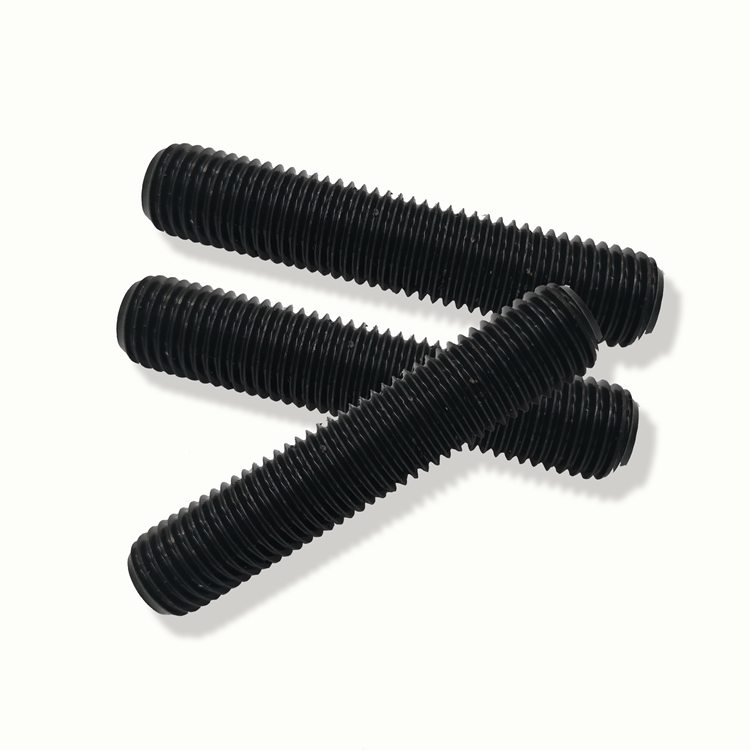stud bolt m24 company
नवम्बर . 15, 2024 19:52 Back to list
stud bolt m24 company
Stud Bolt M24 A Critical Component in Modern Engineering
In the world of engineering and manufacturing, the significance of reliable fastening systems cannot be overstated. Among the various types of fasteners, the stud bolt stands out as a vital component used across diverse industries, including construction, automotive, and aerospace. This article delves into the specifics of the M24 stud bolt, its applications, manufacturing processes, and its impact on the durability and safety of structural assemblies.
Understanding Stud Bolts
Stud bolts are threaded rods that provide robust fastening solutions, typically used in conjunction with nuts. They are preferred for their ability to withstand significant loads and stresses, making them essential in high-pressure environments. The M24 stud bolt specifically refers to a stud bolt with a nominal diameter of 24 millimeters. This size falls within a range that balances strength and versatility, making it a common choice for various industrial applications.
Applications of M24 Stud Bolts
The M24 stud bolt is widely employed in sectors where structural integrity is paramount. In the construction industry, M24 studs are often used in bolting steel frameworks, bridges, and heavy machinery. Their high tensile strength ensures that components remain securely fastened, even under dynamic loads. In the automotive sector, M24 bolts may be found in engine assemblies and chassis, where they contribute to the overall safety and performance of vehicles.
In the oil and gas industry, M24 stud bolts are essential in connecting flanges and securing piping systems. Given the extreme conditions often encountered in these environments, including temperature fluctuations and corrosive materials, using high-quality stud bolts is crucial for ensuring operational safety and preventing leaks.
stud bolt m24 company

Manufacturing Process
The production of M24 stud bolts involves several key steps, including material selection, forging, threading, and surface treatment. Common materials used include carbon steel, stainless steel, and alloy steel, chosen for their mechanical properties and resistance to environmental factors. After forging the rod into the desired shape, precision threading is performed to ensure compatibility with corresponding nuts and other components. Finally, surface treatments such as galvanizing or coating may be applied to enhance corrosion resistance, particularly in harsh industrial environments.
Quality Standards and Regulations
Stud bolts, including the M24 variety, must conform to stringent quality standards to ensure reliability and safety. Various standards, such as ASTM (American Society for Testing and Materials) and ISO (International Organization for Standardization), dictate requirements for material properties, tensile strength, and dimensions. Companies that manufacture or supply M24 stud bolts must adhere to these regulations rigorously to maintain product quality and serve their clients effectively.
Conclusion
In conclusion, the M24 stud bolt plays an integral role in ensuring the strength and safety of numerous applications across different industries. Its robust design and reliable performance make it a preferred choice for engineers and manufacturers alike. As industries continue to evolve and demand higher standards of quality and safety, the importance of reliable fastening solutions like the M24 stud bolt will only increase, reinforcing its status as a cornerstone of modern engineering practices. Whether in constructing buildings, manufacturing vehicles, or facilitating energy production, the M24 stud bolt remains a critical component driving progress and innovation in various fields.
Latest news
-
Premium Wood Screws for Flooring - Reliable Wood Floor Screws Company & Suppliers
NewsJun.24,2025
-
High-Quality Cabinet Bolts – Reliable Factory, Trusted Company & Leading Suppliers
NewsJun.10,2025
-
Dragon Bolts UNF Wholesale – Top OSRS Dragon Bolts UNF Manufacturer & Exporter
NewsJun.10,2025
-
Premium Wind Lock Washers - Secure Anti-Vibration Solution
NewsJun.10,2025
-
Stainless Steel Socket Head Cap Screws High Strength & Corrosion-Resistant
NewsJun.10,2025
-
Shake Proof Washers Durable Anti-Vibration Locking Solutions
NewsJun.09,2025
